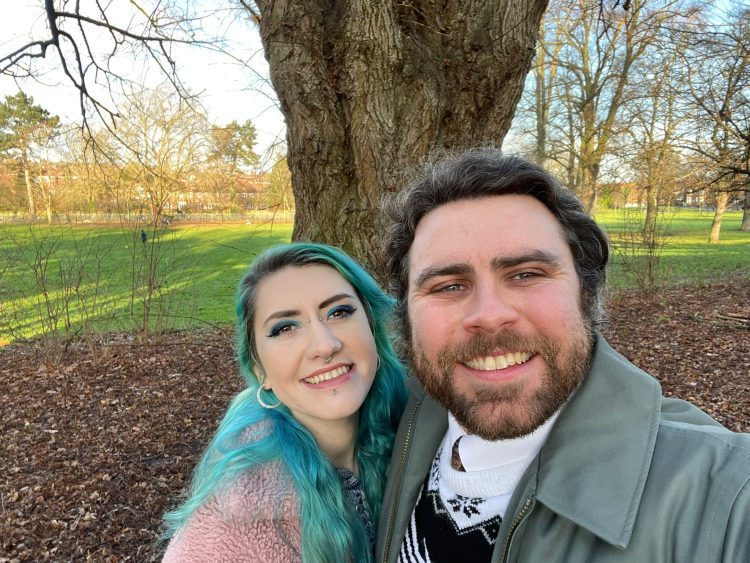A Leicester couple – both diagnosed with neurodivergent conditions as adults, are tackling the gaps in support for individuals with similar challenges through a groundbreaking initiative: NeuroEmpowered Leicester.
Frustrated by the lack of holistic support they encountered throughout their journeys, Charlotte Tait and Dr Matthew Pooley recognised the absence of a coordinated, all-encompassing approach to helping neurodivergent individuals navigate daily life. This realisation was a turning point after a particularly challenging experience where professionals failed to listen to their needs, despite their best efforts.

Picture: Charlotte Tait and Dr Matthew Pooley
Charlotte, who lives with Autism and ADHD (AuDHD), explains, “You’re told you experience the world differently, but then you’re left to fend for yourself.” This lack of comprehensive care led to feelings of isolation, even when they received support from well-meaning professionals. Together with Matthew, who shares the same diagnosis, Charlotte began developing practical resources designed to address these gaps.
The pair’s frustration soon transformed into action, leading to the creation of a series of step-by-step guides aimed at providing the kind of holistic, user-friendly support they had been searching for. The guides are now available on the newly launched website NeuroEmpowered Leicester, and are designed to help anyone who struggles with navigating life’s complexities—whether or not they have a formal neurodivergent diagnosis.
“We wanted to create something that could support people with neurodivergent conditions, but also anyone facing similar challenges in their daily lives,” said Dr. Pooley. “The aim is to give people a structured, step-by-step approach to help them manage various aspects of life, from finances and healthcare to social communication and managing routines.”
The guides include a wide range of topics such as sensory processing, executive functioning, social communication, and even practical advice on everyday activities like booking appointments, managing bills, and navigating public transport. Charlotte highlighted the importance of reducing anxiety by breaking down overwhelming tasks into manageable steps. “It’s about helping people feel like they can handle these things, even if they seem like common sense to others,” she explained.
The pair also aims to raise awareness about the right to advocacy and the ‘Right to Choose’, critical concepts that can help individuals navigate often opaque systems like healthcare. Charlotte shared her own experience with the NHS, where after a lengthy three-year wait for an ADHD assessment, she discovered her right to choose and accessed private care. “A lot of people don’t know these resources exist. It’s about bringing all this information together so it’s easier to find,” she said.
Despite the challenges they’ve faced, Charlotte and Matthew have made it their mission to empower others to advocate for themselves. “We may not be in the position to advocate for others just yet, but we want to equip people with the tools they need to advocate for themselves,” said Matthew.
The step-by-step guides are also designed to be flexible and accessible, enabling individuals to tailor the advice to their own needs. Matthew emphasised that the guides are not just for people with formal diagnoses but for anyone who feels overwhelmed by the demands of daily life. “We want people to take what they need from the resources, whether it’s managing sensory overload or dealing with financial support,” he said.
NeuroEmpowered Leicester aims to create a world where neurodivergent individuals don’t just survive but thrive. Charlotte stressed that societal changes, not personal limitations, create the barriers that many neurodivergent people face. “We’re disabled by society, not by ourselves,” she said. “We need the right platform and the right tools to succeed, and that’s what we’re trying to provide.”
For more information and to access the resource guides, visit: NeuroEmpowered Leicester.



